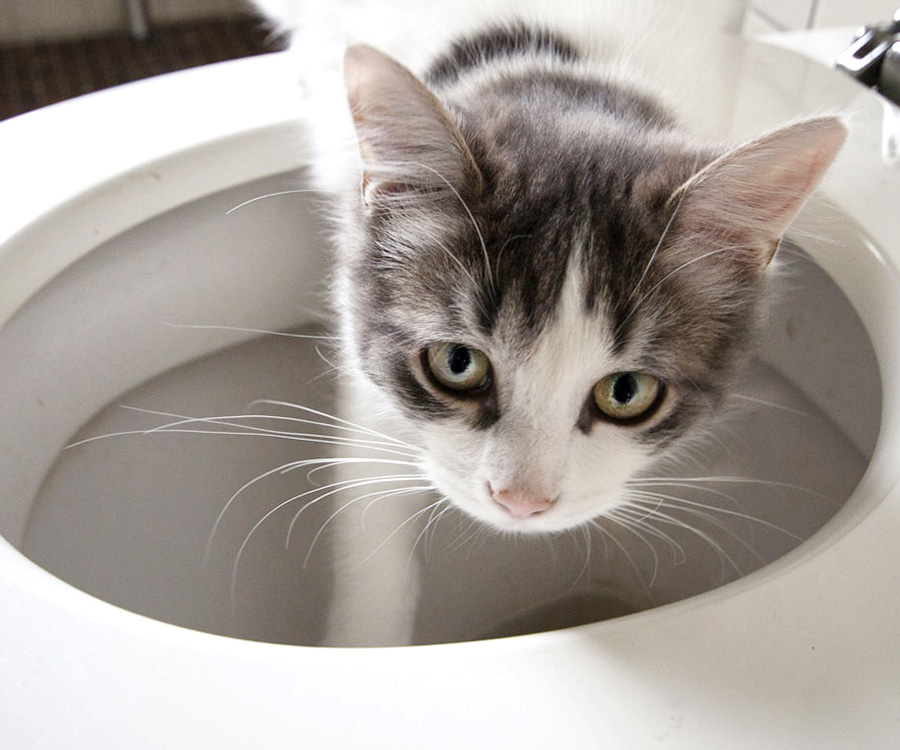Potential Issues of Flushing Cat Poop Down Your Toilet - Protect Your Plumbing
Potential Issues of Flushing Cat Poop Down Your Toilet - Protect Your Plumbing
Blog Article
They are making a few great points about How to Dispose of Cat Poop and Litter Without Plastic Bags as a whole in this content beneath.

Introduction
As pet cat proprietors, it's important to be mindful of exactly how we get rid of our feline buddies' waste. While it might appear convenient to purge pet cat poop down the toilet, this practice can have harmful consequences for both the atmosphere and human health and wellness.
Environmental Impact
Flushing pet cat poop presents unsafe pathogens and bloodsuckers right into the water supply, presenting a substantial threat to aquatic communities. These pollutants can adversely affect marine life and concession water top quality.
Wellness Risks
Along with ecological concerns, purging pet cat waste can likewise posture health and wellness risks to humans. Feline feces may consist of Toxoplasma gondii, a parasite that can trigger toxoplasmosis-- a potentially serious ailment, specifically for pregnant women and people with damaged immune systems.
Alternatives to Flushing
Thankfully, there are much safer and a lot more liable methods to throw away feline poop. Think about the adhering to choices:
1. Scoop and Dispose in Trash
One of the most common method of dealing with feline poop is to scoop it into a naturally degradable bag and throw it in the garbage. Make sure to utilize a dedicated clutter inside story and deal with the waste quickly.
2. Use Biodegradable Litter
Select eco-friendly cat trash made from materials such as corn or wheat. These trashes are eco-friendly and can be safely disposed of in the trash.
3. Hide in the Yard
If you have a lawn, consider burying pet cat waste in a designated location far from veggie yards and water sources. Make sure to dig deep adequate to prevent contamination of groundwater.
4. Mount a Pet Waste Disposal System
Purchase a pet waste disposal system specifically designed for pet cat waste. These systems make use of enzymes to break down the waste, reducing smell and environmental effect.
Final thought
Liable pet dog ownership expands beyond providing food and sanctuary-- it also involves correct waste monitoring. By refraining from flushing cat poop down the commode and selecting alternative disposal approaches, we can decrease our ecological impact and protect human health and wellness.
Why You Should Never Flush Cat Poop Down the Toilet
A rose by any other name might smell as sweet, but not all poop is created equal. Toilets, and our sewage systems, are designed for human excrement, not animal waste. It might seem like it couldn’t hurt to toss cat feces into the loo, but it’s not a good idea to flush cat poop in the toilet.
First and foremost, assuming your cat uses a litter box, any waste is going to have litter on it. And even the smallest amount of litter can wreak havoc on plumbing.
Over time, small amounts build up, filling up your septic system. Most litter sold today is clumping; it is made from a type of clay that hardens when it gets wet. Ever tried to scrape old clumps from the bottom of a litter box? You know just how cement-hard it can get!
Now imagine just a small clump of that stuck in your pipes. A simple de-clogger like Drano isn’t going to cut it. And that means it’s going to cost you big time to fix it.
Parasitic Contamination
Believe it or not, your healthy kitty may be harboring a nasty parasite. Only cats excrete Toxoplasma in their feces. Yet it rarely causes serious health issues in the cats that are infected. Most people will be fine too if infected. Only pregnant women and people with compromised immune systems are at risk. (If you’ve ever heard how women who are expecting are excused from litter cleaning duty, Toxoplasma is why.)
But other animals may have a problem if infected with the parasite. And human water treatment systems aren’t designed to handle it. As a result, the systems don’t remove the parasite before discharging wastewater into local waterways. Fish, shellfish, and other marine life — otters in particular — are susceptible to toxoplasma. If exposed, most will end up with brain damage and many will die.
Depending on the species of fish, they may end up on someone’s fish hook and, ultimately on someone’s dinner plate. If that someone has a chronic illness, they’re at risk.
Skip the Toilet Training
We know there are folks out there who like to toilet train their cats. And we give them props, it takes a lot of work. But thanks to the toxoplasma, it’s not a good idea.

As an enthusiastic person who reads about Don’t flush cat feces down the toilet, I assumed sharing that piece of content was sensible. I beg you set aside a second to share this blog posting if you appreciated it. I love reading our article about How to Dispose of Cat Poop and Litter Without Plastic Bags.
Call Today Report this page